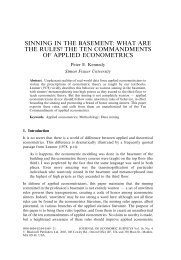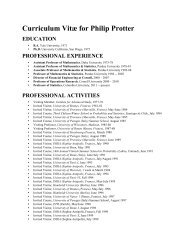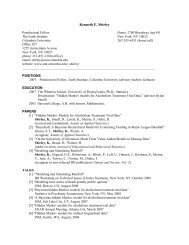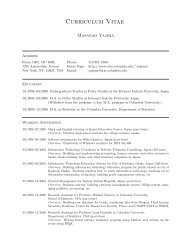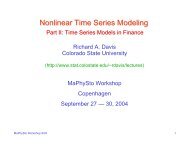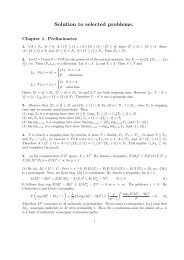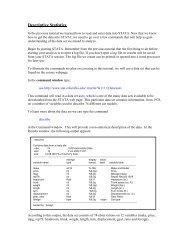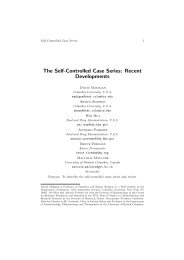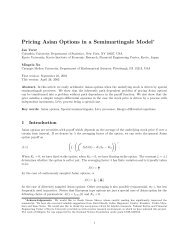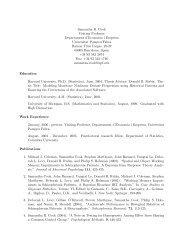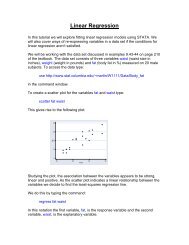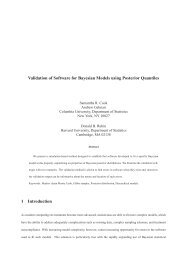- Page 1 and 2:
Overview Social and political polar
- Page 3 and 4:
Overview Social and political polar
- Page 5 and 6:
Overview Social and political polar
- Page 7 and 8:
Overview Social and political polar
- Page 9 and 10:
Overview Social and political polar
- Page 11 and 12:
Overview Social and political polar
- Page 13 and 14:
Overview Social and political polar
- Page 15 and 16:
Overview Social and political polar
- Page 17 and 18:
Overview Social and political polar
- Page 19 and 20:
Overview Social and political polar
- Page 21 and 22:
Overview Social and political polar
- Page 23 and 24:
Overview Social and political polar
- Page 25 and 26:
Overview Social and political polar
- Page 27 and 28:
Overview Social and political polar
- Page 29 and 30:
Overview Social and political polar
- Page 31 and 32:
Overview Social and political polar
- Page 33 and 34:
Overview Social and political polar
- Page 35 and 36:
Overview Social and political polar
- Page 37 and 38:
Overview Social and political polar
- Page 39 and 40:
Overview Social and political polar
- Page 41 and 42:
Overview Social and political polar
- Page 43 and 44:
Overview Social and political polar
- Page 45 and 46:
Overview Social and political polar
- Page 47 and 48:
Overview Social and political polar
- Page 49 and 50:
Overview Social and political polar
- Page 51 and 52:
Overview Social and political polar
- Page 53 and 54:
Overview Social and political polar
- Page 55 and 56:
Overview Social and political polar
- Page 57 and 58:
Overview Social and political polar
- Page 59 and 60:
Overview Social and political polar
- Page 61 and 62:
Overview Social and political polar
- Page 63 and 64:
Overview Social and political polar
- Page 65 and 66:
Overview Social and political polar
- Page 67 and 68:
Overview Social and political polar
- Page 69 and 70:
Overview Social and political polar
- Page 71 and 72:
Overview Social and political polar
- Page 73 and 74:
Overview Social and political polar
- Page 75 and 76:
Overview Social and political polar
- Page 77 and 78:
Overview Social and political polar
- Page 79 and 80:
Overview Social and political polar
- Page 81 and 82:
Overview Social and political polar
- Page 83 and 84:
Overview Social and political polar
- Page 85 and 86:
Overview Social and political polar
- Page 87 and 88:
Overview Social and political polar
- Page 89 and 90:
Overview Social and political polar
- Page 91 and 92:
Overview Social and political polar
- Page 93 and 94:
Overview Social and political polar
- Page 95 and 96:
Overview Social and political polar
- Page 97 and 98:
Overview Social and political polar
- Page 99 and 100:
Overview Social and political polar
- Page 101 and 102:
Overview Social and political polar
- Page 103 and 104:
Overview Social and political polar
- Page 105 and 106:
Overview Social and political polar
- Page 107 and 108:
Overview Social and political polar
- Page 109 and 110:
Overview Social and political polar
- Page 111 and 112:
Overview Social and political polar
- Page 113 and 114:
Overview Social and political polar
- Page 115 and 116:
Overview Social and political polar
- Page 117 and 118:
Overview Social and political polar
- Page 119 and 120:
Overview Social and political polar
- Page 121 and 122:
Overview Social and political polar
- Page 123 and 124:
Overview Social and political polar
- Page 125 and 126:
Overview Social and political polar
- Page 127 and 128:
Overview Social and political polar
- Page 129 and 130:
Overview Social and political polar
- Page 131 and 132:
Overview Social and political polar
- Page 133 and 134:
Overview Social and political polar
- Page 135 and 136:
Overview Social and political polar
- Page 137 and 138:
Overview Social and political polar
- Page 139 and 140:
Overview Social and political polar
- Page 141 and 142:
Overview Social and political polar
- Page 143 and 144:
Overview Social and political polar
- Page 145 and 146:
Overview Social and political polar
- Page 147 and 148:
Overview Social and political polar
- Page 149 and 150:
Overview Social and political polar
- Page 151 and 152:
Overview Social and political polar
- Page 153 and 154:
Overview Social and political polar
- Page 155 and 156:
Overview Social and political polar
- Page 157 and 158:
Overview Social and political polar
- Page 159 and 160:
Overview Social and political polar
- Page 161 and 162:
Overview Social and political polar
- Page 163 and 164:
Overview Social and political polar
- Page 165 and 166:
Overview Social and political polar
- Page 167 and 168:
Overview Social and political polar
- Page 169 and 170:
Overview Social and political polar
- Page 171 and 172:
Overview Social and political polar
- Page 173 and 174:
Overview Social and political polar
- Page 175 and 176:
Overview Social and political polar
- Page 177 and 178:
Overview Social and political polar
- Page 179 and 180:
Overview Social and political polar
- Page 181 and 182:
Overview Social and political polar
- Page 183 and 184:
Overview Social and political polar
- Page 185 and 186:
Overview Social and political polar
- Page 187 and 188:
Overview Social and political polar
- Page 189 and 190:
Overview Social and political polar
- Page 191 and 192:
Overview Social and political polar
- Page 193 and 194:
Overview Social and political polar
- Page 195 and 196:
Overview Social and political polar
- Page 197 and 198:
Overview Social and political polar
- Page 199 and 200: Overview Social and political polar
- Page 201 and 202: Overview Social and political polar
- Page 203 and 204: Overview Social and political polar
- Page 205 and 206: Overview Social and political polar
- Page 207 and 208: Overview Social and political polar
- Page 209 and 210: Overview Social and political polar
- Page 211 and 212: Overview Social and political polar
- Page 213 and 214: Overview Social and political polar
- Page 215 and 216: Overview Social and political polar
- Page 217 and 218: Overview Social and political polar
- Page 219 and 220: Overview Social and political polar
- Page 221 and 222: Overview Social and political polar
- Page 223 and 224: Overview Social and political polar
- Page 225 and 226: Overview Social and political polar
- Page 227 and 228: Overview Social and political polar
- Page 229 and 230: Overview Social and political polar
- Page 231 and 232: Overview Social and political polar
- Page 233 and 234: Overview Social and political polar
- Page 235 and 236: Overview Social and political polar
- Page 237 and 238: Overview Social and political polar
- Page 239 and 240: Overview Social and political polar
- Page 241 and 242: Overview Social and political polar
- Page 243 and 244: Overview Social and political polar
- Page 245 and 246: Overview Social and political polar
- Page 247 and 248: Overview Social and political polar
- Page 249: Overview Social and political polar
- Page 253 and 254: Overview Social and political polar
- Page 255 and 256: Overview Social and political polar
- Page 257: Overview Social and political polar



